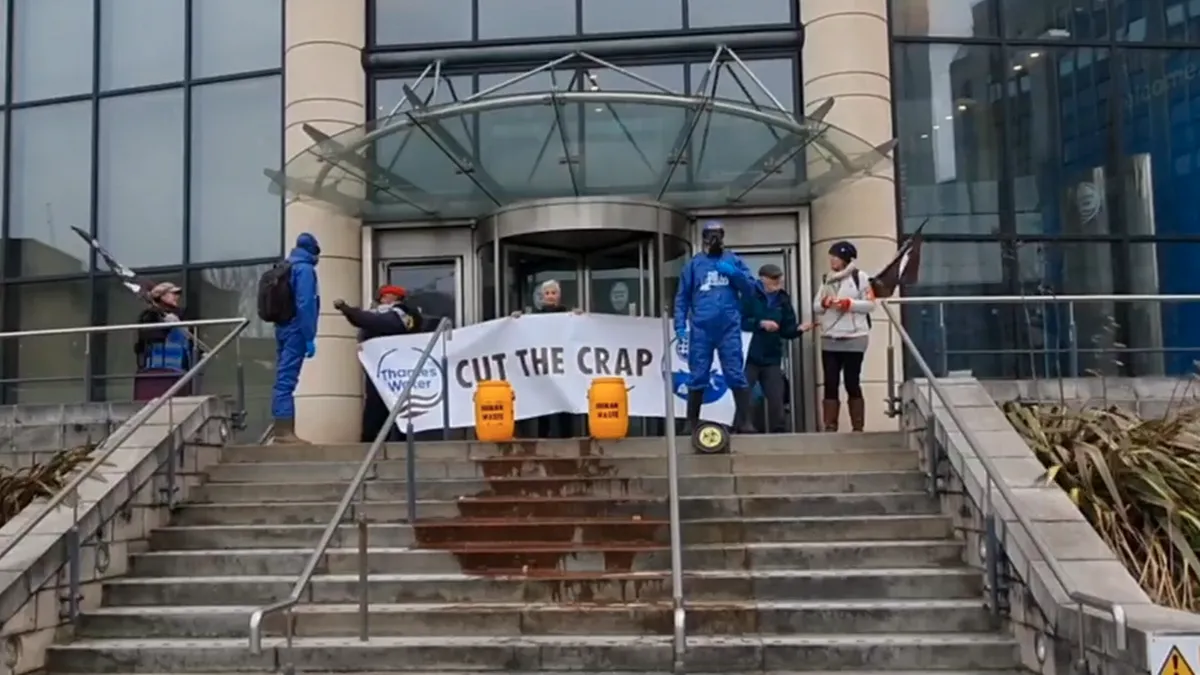Join the Libertarian Party! Take back your rights from big government
Liberty Unleashed
Bold Perspectives and Unfiltered Insights on Liberty and Freedom
Breaking Free from the Chains of Big Government

Cut The Cr*p
On 13 March 2023, Extinction Rebellion campaigners poured fake sewage outside Thames Water's Reading headquarters, demanding that the company stop polluting rivers by illegally pouring untreated sewage into waterways.
They also demanded an end to excessive executive pay, dividends, and bonuses.
Let me begin by condemning Extinction Rebellion for their actions. Vandalism on other people's property is never acceptable, regardless of the motivation.
Let me offer a libertarian perspective on how to deal with river pollution.
From a libertarian standpoint, the market should be held accountable for dealing with river pollution. Private property rights, including the right to safe drinking water, must be enforced, and those who violate these rights must take accountability for the harm they cause.
Polluters would be required to pay the full cost of their actions, including the cost of cleaning up the pollution they cause, in a truly free market. The fines that water companies are currently facing are simply the cost of doing business.
Let me give you a simpler example of how this works in practice. I once witnessed railway staff and police force a young man to clean up his mess after he urinated on the station platform. They did not simply issue him a fixed penalty notice and let him go. By making him clean up his own mess, he is learning what it means to violate property rights and accept responsibility for his actions.
In this scenario, the government's role would be limited to enforcing property rights and contracts, including those relating to pollution.
The courts could also help parties negotiate, such as when one party cannot afford the cost of cleaning up pollution they caused.
However, the government should not intervene in the market by imposing regulations or imposing pollution limits. When you set pollution caps, they will always pollute up to the limit allowed; there is no incentive to reduce pollution further.
I also contend that government intervention is frequently counterproductive, as regulations and restrictions can have unintended consequences that harm the environment even more.
Regulations, may incentivize businesses to find loopholes, resulting in more pollution. For example, consider the Water Framework Directive (WFD), which was enacted in 2000 to protect water quality in the European Union.
The WFD established a framework for environmental standards and water pollution reduction.
However, the regulations were overly prescriptive and rigid, failing to take into account local conditions or the needs of farmers and other stakeholders.
As a result, some farmers have struggled to meet the WFD's requirements, resorting to increased chemical use to achieve the necessary crop yields.
This has increased water pollution by allowing excess chemicals to run off into nearby streams and rivers.
Government regulations intended to protect the environment have had unintended consequences, leading to increased water pollution.
I believe that the market should be held accountable for dealing with river pollution.
Private property rights must be enforced, and polluters must be held accountable for their actions and forced to clean up their mess.
The government's role should be limited to enforcing property rights and facilitating negotiations, rather than imposing regulations or limiting pollution.
While this approach may appear radical, I would argue that it is the most effective way to protect the environment and promote sustainable practises in the long run.
Free market environmentalism seeks to protect the environment through market incentives and private property rights rather than relying on government intervention or regulations. While it has won’t always be perfect it will be less imperfect than any government led solutions, and it offers an alternative approach to environmental protection that prioritises individual choice made at local level and in response to the needs of the market.
The man who trades freedom for security does not deserve nor will he ever receive either.
Benjamin Franklin
The Libertarian Party UK, White House, Ednam Road, Dudley, DY1 1JX
Email:enquiries@libertarianpartyuk.com | Phone: 01384 906075
Terms of Use | Privacy Policy
Electoral Commission: RP 2517848 (GB) | Vat No: 371 3960 88

